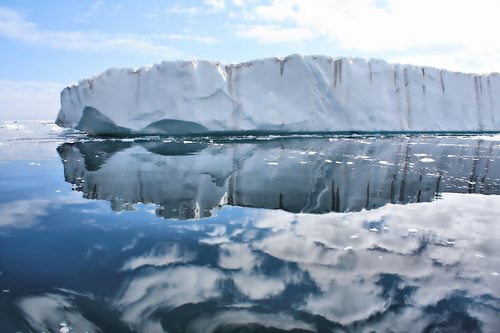

News
Study: Greenland and Antarctica are losing 500 km³ of ice per year
New data mapping Greenland and Antarctica’s ice sheets has revealed a record amount of ice loss occurring in the regions, which have doubled their contribution to sea level rise since 2009.
The findings by the Alfred Wegener Institute, Helmholtz Centre for Polar and Marine Research (AWI) published in the journal The Cryosphere are based on data collected by the ESA satellite CryoSat-2.
Researchers found that ice sheets in West Antarctica and Greenland have experienced a huge ice loss over the past few years, together losing around 500 cubic km of ice annually, which ends up in the ocean, rising sea levels.
AWI glaciologist Dr Angelika Humbert, one of the study’s authors, explained, “When we compare the current data with those from the ICESat satellite from the year 2009, the volume loss in Greenland has doubled since then. The loss of the West Antarctic Ice Sheet has in the same time span increased by a factor of 3.
“Combined the two ice sheets are thinning at a rate of 500 cubic kilometres per year. That is the highest speed observed since altimetry satellite records began about 20 years ago.”
Dr Veit Helm, lead author of the study, added, “The new elevation maps are snapshots of the current state of the ice sheets. The elevations are very accurate, to just a few metres in height, and cover close to 16 million km2 of the area of the ice sheets. This is 500,000 square kilometres more than any previous elevation model from altimetry.
“We need to understand where and to which extent the ice thickness across the glaciers has changed. Only then can we can analyse the drivers of these changes and find out how much ice sheets contribute to global sea level rise.”
The news comes after a warning and worrying series of studies by scientists who have said that warmer land and ocean temperatures are affecting the poles and worsening climate change. In May experts claimed that the collapse of the West Antarctic ice sheet – capable of triggering a sea level rise of up to 4 metres – is now unstoppable.
Meanwhile, Greenland is experiencing record high temperatures and its largest ice sheets previously thought to be stable has been found to have lost 10 billion tons of ice per year since 2003.
Photo: Christine Zenino via flickr
Further reading:
Antarctic ice loss has doubled in less than a decade
West Antarctic ice sheet collapse is now unstoppable
Worries over melting of previously ‘stable’ Greenland ice sheet
Melting of Antarctica’s Pine Island glacier may continue for centuries


 Environment12 months ago
Environment12 months agoAre Polymer Banknotes: an Eco-Friendly Trend or a Groundswell?

 Features11 months ago
Features11 months agoEco-Friendly Cryptocurrencies: Sustainable Investment Choices

 Features12 months ago
Features12 months agoEco-Friendly Crypto Traders Must Find the Right Exchange

 Energy11 months ago
Energy11 months agoThe Growing Role of Solar Panels in Ireland’s Energy Future




























